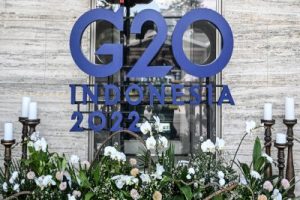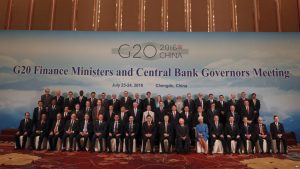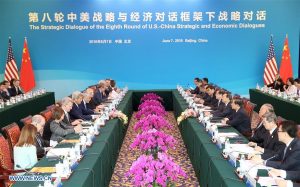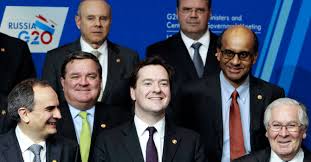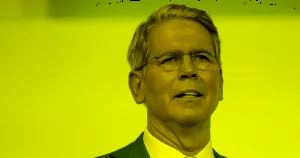
Well yes a bit late. And a bit shorter. Indeed I am anticipating rather shorter Posts, and possibly later than usual for the next couple of Posts as I am attending the Annual International Studies Association (ISA) meetings – the 66th – in Chicago. Lots of folks and many good panels and sessions on international politics international security and global governance.
Now, I was tempted to reflect on the ‘shit show’ that went down between President Zelenskyy and President Trump and Vice President Vance. But I think I’ll hold off. There will be lots of immediate reaction, and indeed there has been, and I am interested in seeing ‘how the dust settles’ on this grim encounter before trying to assess the consequences for US-Ukraine, US, Ukraine-Europe, and US-Russia relations.
Instead, I just want to underline the continuing disinterest-distaste the Trump administration appears to be paying to the South Africa Presidency of the G20. It began publicly, as noted in my previous post, with the decision by Secretary of State Marco Rubio to absent himself from the first Foreign Ministers meeting under the South Africa presidency. As reported by Rob Rose and Sam Fleming of the FT, this was followed by the decision by Scott Bessent, the Secretary of the Treasury not to attend the first G20 Finance gathering. As they wrote:
“US Treasury Secretary Scott Bessent said last week he would remain in Washington — a move that followed secretary of state Marco Rubio’s decision to not “waste taxpayer money or coddle anti-Americanism” by attending a G20 meeting of foreign ministers in South Africa last week.”
What then followed to was a determination by several other finance ministers to follow suit:
“Among the countries that are not expected to send their finance ministers to Cape Town are India, China, Brazil and Mexico, according to people familiar with the organisation of the meetings.”
As it turned out Japan’s finance minister also decided not to attend as well.
Rob Rose then followed up in a subsequent FT piece that then described additionally that the finance ministers who did attend in Cape Town were unable to issue a joint finance statement in part due to Trump’s decision to impose 25 percent tariffs on Europe:
“Trump said this week that he planned to impose 25 per cent tariffs on goods from the EU, saying the bloc’s goal was to “screw the United States”.”
“G20 finance ministers have been unable to agree a joint communique of their gathering in Cape Town, intensifying questions over the relevance of this body in an era of waning US support for multilateral forums.”
“A European official who attended the G20 meetings told the Financial Times that “harsh words” had been exchanged between European finance ministers and US officials in light of Trump’s threats.
““In many ways, the US was alone,” he said. “Its trade position was on everyone’s lips, with many of the discussions being about US tariffs and what is at stake for multilateralism. In general, the European countries are aligned that this protectionism is bad for the world.””
“In the chair’s summary of the talks, released at the summit’s close, the G20 said the discussions “reiterated the commitment to resisting protectionism”, and a commitment to a “multilateral trading system with the World Trade Organization at its core”.”
The angry Trump words and actions have undermined already two very important ministerial gatherings and may well lead other US ministers to cancel their attendance as well. Such actions and words could sidetrack many G20 meetings and actions. And It is still unclear whether Trump will attend the Leaders’ Summit in November. While there is a significant downside to US absence, on the other hand Trump’s decision to attend also raises questions. If he chooses to attend then the question arises what that may be like. How destructive might he choose to be. GIven the meeting with Trump and Zelenskyy just last week that could be a terror incident as well.
All that is nerve-racking enough. But we still need to see whether the US is willing to take hosting of the G20 for 2026. With South Africa, as I pointed out in a previous Substack Post, completing its G20 hosting by the end of the year, the G20 cycle restarts with the United States presumably taking the hosting for the year, having taken the first G20 Leaders’ Summit during the George W. Bush’s presidnecy in 2008. Would it be better for the G20 to turn down such hosting in the face of Trump’s current antagonism. How that could occur I’m not at all sure. Finally, this leaves one final question: will Trump play destroyer with his presence at the G7 which this year has Canada – the presumptive 51st state according to Trump, hosting the G7 this current year.
Image Credit: NBC News
This Post originally appearde at my Substack, Alan’s Post.
https://globalsummitryproject.substack.com/p/the-crooked-g20g7-path-for-the-united

